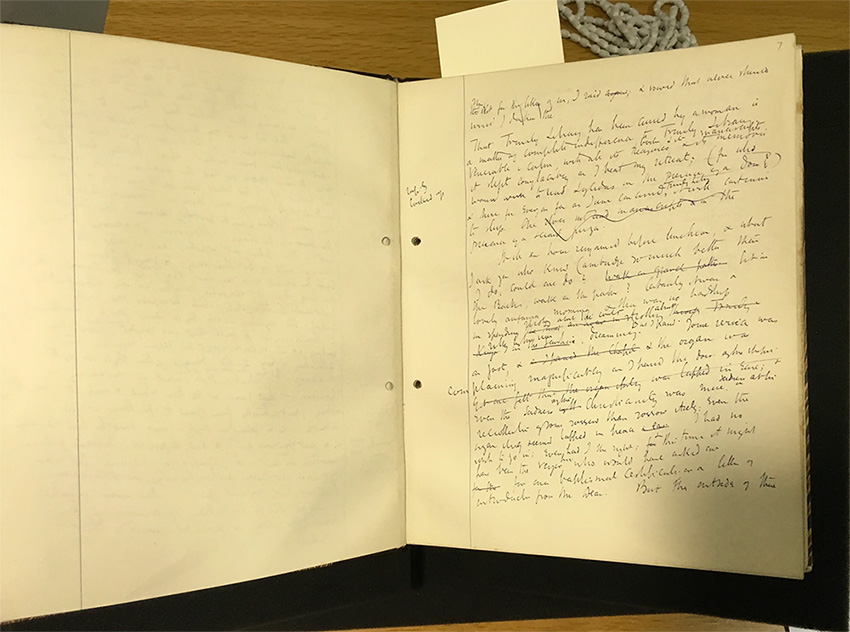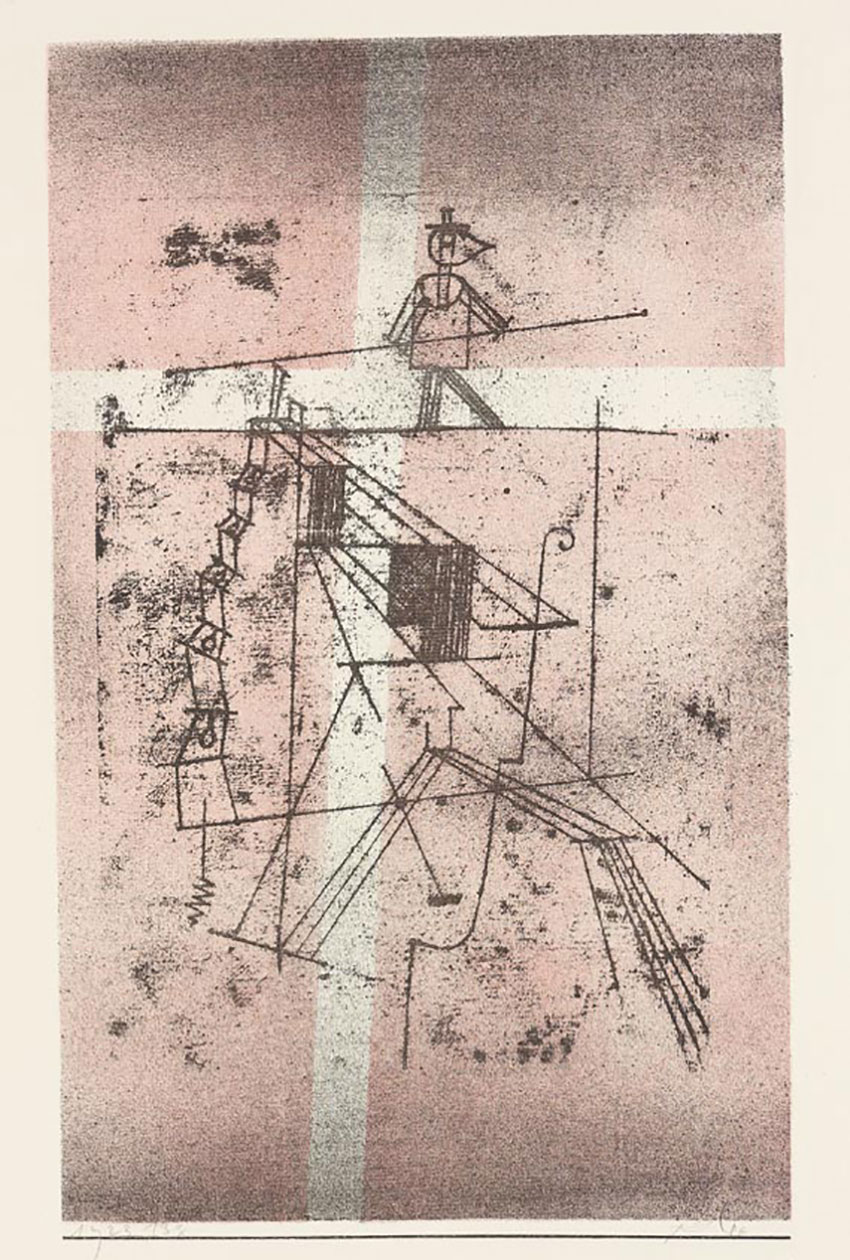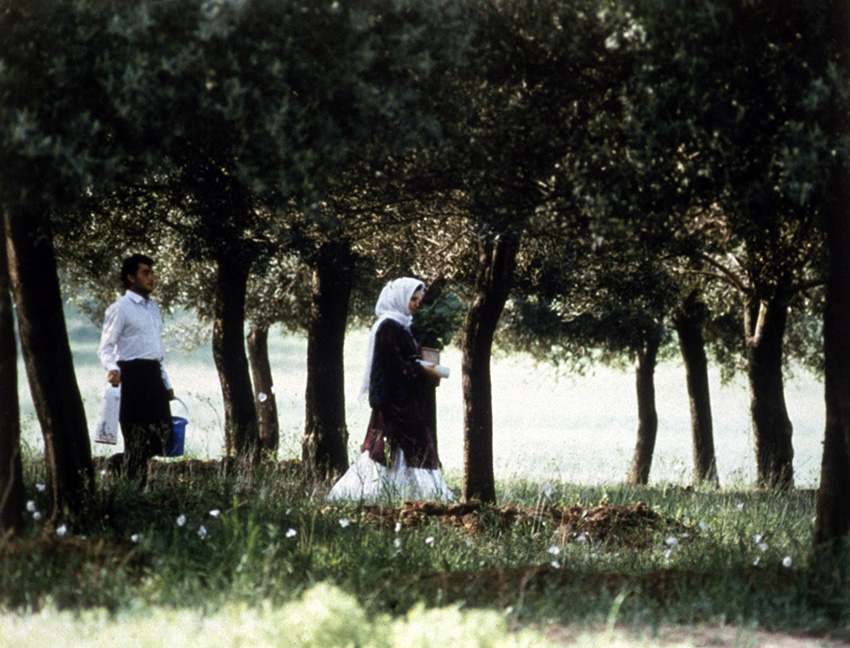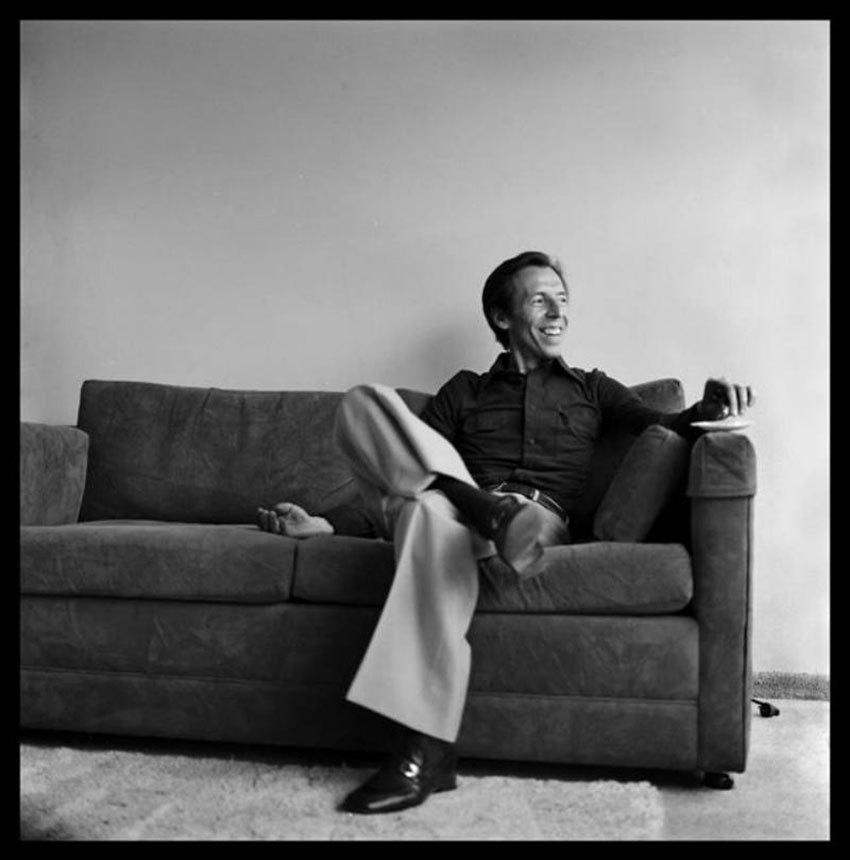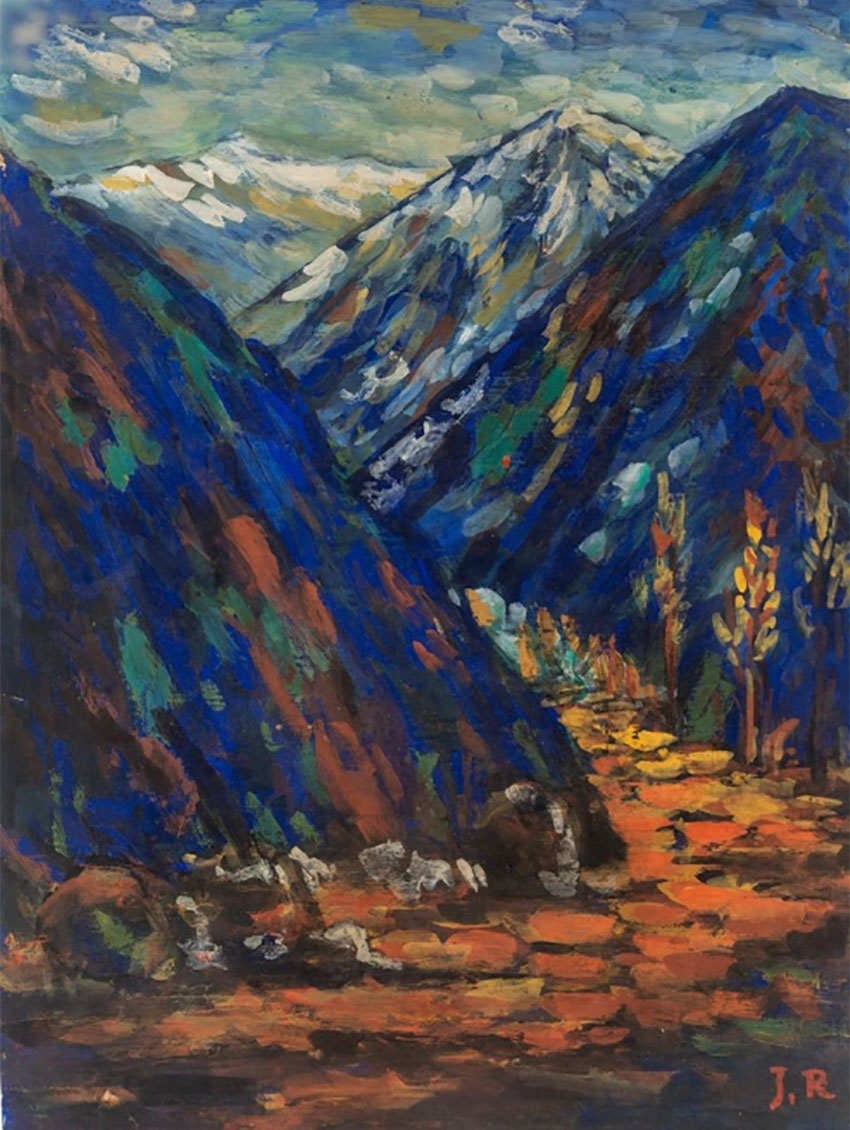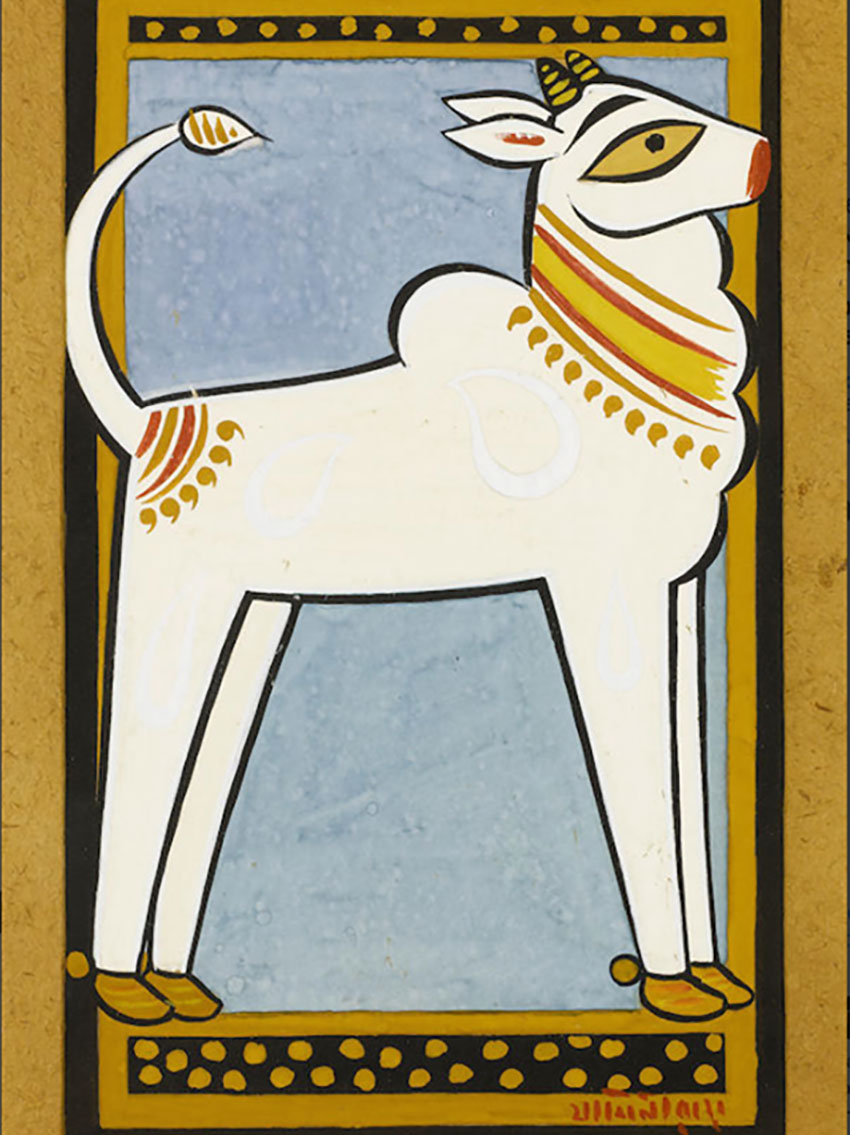Still from Through the Olive Trees (1994), Abbas Kiarostami
Storytelling and Forgetfulness
Amit Chaudhuri
Years ago, I began to run into the claim that we are all storytellers. Storytelling was evidently a primal communal function for humanity. I was assured that we’ve been telling each other stories since the beginning of time. I felt a churlish resistance to these proclamations, possibly because one might decide that being human doesn’t mean one should subscribe, without discomfiture, to everything the human race is collectively doing at any given point. Storytelling shouldn’t be guaranteed an aura simply because humans have been at it from the beginning of history. Of course, part of my unease emanated from the fact that the ‘beginning of history’ is even more of a wishful invention than the ‘end of history’ is. It occurs to me that we probably began to hear ‘We are all storytellers’, as an utterance, from the late 1980s and early 90s onwards. From the moment one first heard this utterance, one was told it had been made from the beginning of time. As with various things that happened in the age of globalisation, radical shifts in our understanding (of value, for instance) quickly acquired an immemorial air. So, for example, it became increasingly difficult to conceive of a period in history that valued things differently from the way the free market does. Middle-class ideology may have concerned itself with appropriating the universal; the ‘now’ of the free market appears to have been more preoccupied with recruiting eternity. As a result, the popular-culture term ‘all time’ gained a new meaning with globalisation; like the assertion ‘We have always been storytellers’, ‘all-time’ lists and ‘all-time greats’ often go back over periods and are applied to categories (like rock guitarists) that are actually thirty years old.
The disciplinary shifts in the humanities privileging ‘storytelling’ are too numerous to go into here: I’ll only give one example. A historian recently told me that she asks her students to liberate themselves from the constraints of their pedagogy by thinking of the novel and behaving like ‘storytellers’. As I said to her, this interpretation of the novel of course inadvertently makes imaginative writing, especially fiction, synonymous with storytelling: it’s as if looking outside the bounds of scholarly work towards fiction or imaginative prose as a model for loosening constraints must privilege narrative, rather than other aspects of fiction, as being constitutive of the liberations of imaginative writing.
A surfeit of ‘We are all storytellers’ made me realise that this was not really a primary utterance at all. The primary utterance, if there must be one, is praise or acknowledgement of what makes stories and other things possible: existence; life. By ‘life’ I mean not what narrative is ‘about’, but what lies on narrative’s periphery. What the earliest texts seem to do is to attempt to find a language with which to both come to terms with and acknowledge – even celebrate – the contingency of the fact of existence. The story, with the human or anthropomorphised animal at the centre, emerges in the aftermath of existence, but, paradoxically, has an air of being recounted and a priori, of already having happened. Existence is neither a priori nor originary; it’s a moment of possibility.
In the spirit of investigating whether we were always storytellers, I went back to a canonical text. It’s from the first millennium BC: the Kena Upanishad. It felt important to go back to it because storytelling has been almost dutifully conflated with non-Western cultures, which themselves are often conflated with orality. Writing and inscription are, on the other hand, an Enlightenment project. Outside the West, in the lap of orality, our mothers and grandmothers have been telling us stories from when we were in the womb. Story, for us, has been an autochthonic method of nutrition. While not denying any of this, it was important to check out a primary text from an incorrigibly storytelling culture. ‘Kena’ in the Kena Upanishad means ‘why’, connected to the whys and wherefores of the universe. This poetic statement is from the brief opening section of this Upanishad (note that Brahman is not to be confused with Brahma, Brahmin, or other similar-sounding words):
Who sends the mind to wander afar, who first drives life to start on its journey, who impels us to utter these words, who is the spirit [‘spirit’, as the Sanskritist Heeraman Tiwari pointed out to me, is a Judeo-Christian translation of what he calls, in his translation, an all-pervasive ‘element’] behind the eye and the ear. . . What cannot be spoken with words, but that whereby words are spoken, know that alone to be Brahman.
What cannot be thought with the mind, but that whereby the mind can think, know that alone to be Brahman the spirit and not what people here adore. What cannot be seen with the eye, but that whereby the eye can see – know that alone to be Brahman. What cannot be heard with the ear, but that whereby the ear can hear; what cannot be withdrawn with breath, but that whereby breath is withdrawn, know that alone to be Brahman.1
This comes across not so much as a narrative of creation as an instance of self-reflexivity that is at once curiously tortured and liberating. Its meaning can’t be paraphrased, but it can be rephrased as a series of questions and replies. ‘What can’t be thought with the mind? Whatever it is that makes the mind think.’ ‘What can’t be seen with the eye? Whatever it is that makes the eye see.’ It’s an account that abjures progression on behalf of the self-reflexive, of the assertion that turns upon itself.
Here’s an excerpt from the third section:
The Brahman once won a victory for the Devas. Through that victory of the Brahman, the Devas became elated. They thought, ‘This victory is ours. This glory is ours.’ The Brahman perceived this and appeared before them. They did not know what mysterious form it was.
They said to Fire: ‘O Jataveda (All-knowing)! Find out what mysterious spirit this is.’ He said: ‘Yes.’
Brahman asked: ‘What power resides in thee?’ Agni replied: ‘I can burn up all whatsoever exists on earth.’
Brahman placed a straw before him and said: ‘Burn this.’ He (Agni) rushed towards it with all speed, but was not able to burn it. So he returned from there and said (to the Devas): ‘I was not able to find out what this great mystery is.’
Then they said to Vayu (the Air-god): ‘Vayu! Find out what mystery this is.’ He said: ‘Yes.’
He ran towards it and He (Brahman) said to him: ‘Who art thou?’ ‘I am Vayu, I am Matarisva (traveller of Heaven),’ he (Vayu) said.
Then the Brahman said: ‘What power is in thee?’ Vayu replied: ‘I can blow away all whatsoever exists on earth.’
Brahman placed a straw before him and said: ‘Blow this away.’ He (Vayu) rushed towards it with all speed, but was not able to blow it away. So he returned from there and said (to the Devas): ‘I was not able to find out what this great mystery is.’2
Although similar in shape and tone to Judaeo-Christian parables about miraculous strength, like the one about Samson bringing down the columns, this is really a parable about delicacy. After all, what’s at issue here is not moving mountains, but a straw. You don’t need strength to move a straw: what is it that you need, then? Delicacy is non-narrative; as with writing a poem, you can’t coerce its workings. Narrative and story by themselves are neither the same thing as, nor a guarantee of, movement; this is what writers, like the mystified Devas, need to learn quickly. Otherwise the straw stays inert.
* * *
I never liked reading novels. My growing up was spent consuming comic books and poems. I was eventually drawn to novels through exceptional paragraphs cited in essays; by my late teens, I was probably more likely to read a piece of criticism about a work rather than the work itself. One such paragraph occurs in A House for Mr Biswas by VS Naipaul, where Biswas in his early life takes a new job as a sign painter after having been a bus conductor. I encountered it in my early twenties in a critical piece about the book in an anthology on ‘commonwealth literature’. Biswas must reproduce the edict, ‘IDLERS KEEP OUT BY ORDER’.
…his hand became surer, his strokes bolder, his feeling for letters finer. He thought R and S the most beautiful of Roman letters; no letter could express so many moods as R, without losing its beauty; and what could compare with the swing and rhythm of S? With a brush, large letters were easier than small…3
I was transfixed by this paragraph, and felt it was a shame that I’d have to read the novel. I was content, instead, to reread the paragraph endlessly. This is because the paragraph presented me with a possibility. The possibility was the novel. The novel I was presented with was not the telling, the recounting, that I would purportedly have to read. That act of reading the narrative, the recounting, would, in a sense, diminish the possibility generated by this encounter with the paragraph. Where, then, are we likely to find this moment of possibility in a piece of writing; in, say (since we are talking about storytelling), a work of narrative fiction? To me it seems it resides in the sort of standalone paragraph such as the one I’ve quoted, which belongs to a story but is also independent of it, in that it seems equally located in an irreducible life and textuality outside that novel as it is in the life narrated and contained within it.
The moment of possibility resides especially in the opening paragraphs of a work of fiction, or any paragraph that has the irresolution, the air of open-endedness and lifelikeness, the lack of recountedness, that opening paragraphs have. The paragraphs in the first page of a novel (sometimes in the second and third pages too) have not been bound yet by the telling, but are opening out on to something. My ambition, always, was to write novels composed entirely of opening paragraphs and then to put them in some kind of order. The order would be a sequence that was partly illusory. Of course, we are experts at creating an illusion of continuity, both as readers and writers, and I believe that if you give somebody a text without any narrative they will impose continuity on it. My subterranean aim – so subterranean that it’s taken me two decades to see what I was up to – was to create an assemblage of opening paragraphs, to expand as much as possible, without introducing a sense of development, the vivid lack of resolution of the first three or four pages.
What kind of text is produced by an artist who doesn’t want the moment of possibility to be closed down by the compulsion or the need to tell? Once you commit to telling, the moment in the opening paragraph is over. We know for a fact that many writers have wonderful opening pages whose magic is sacrificed to higher causes, such as observances to do with the syntax of realism, and the responsibility of portraying the arc of the existence of certain human beings or ‘characters’: the novelist ‘must become the whole of boredom itself’, says W H Auden, who was in awe of, and slightly bewildered by, this voluntary taking on of the depiction of social milieu almost as a form of social responsibility. This loss of the abandon of the opening pages is characteristic of the human compromise, the deep maturity, that the novel represents, when the writer knowingly assents to being shackled by the need for narrative and telling. Naipaul himself is a fundamental example of a writer who sometimes begins with astonishing passages of lifelikeness, but then not so much loses the plot, or loses himself to a plot, but takes on upon himself fetters that are clearly unwanted. Joan Didion recognises this, and expands on the peculiar sensory excitement of the first three pages of Naipaul’s Guerrillas, which she confesses to compulsively rereading, almost as if the rest of the novel didn’t really matter. In the novella In A Free State, Naipaul translates, with extraordinary vitality in the opening section, an intuition of possibility into a story about a European man and woman who must journey urgently and impulsively out of an African country in the time of a coup. Then, like his two characters, he seems not to know what to do except see the journey through. As the syntax of narrative takes over, not only does the representation of the journey feel increasingly entrapping, but – as is often the case with Naipaul when he feels unhappy – by most standards morally and politically peculiar, turgid, and alienating.
Something similar happens in his travelogue, An Area of Darkness.4 Towards the beginning, a period of waiting is described: the ship, on its way to India, has stopped at the port in Alexandria. Nothing happens; horse-drawn cabs are awaiting fares. Few arrive, and melancholy settles in. This melancholy is a form of excitement, just as the waiting-for-something-to-happen is a kind of energy unmatched by the events later narrated in the book, the actual encounter with India, which is the book’s legitimate subject. For Naipaul, as possibility recedes (and possibility, for him, as the chapter on Alexandria shows, has little do with optimism), questionable moral judgement begins to dominate: this is his response to the cost of succumbing to narrative propriety – not so much ‘becoming the whole of boredom itself’, but an alienated chafing.
A House for Mr Biswas opens with a short prologue, where everything is indeterminate and proleptic. It begins, ‘Ten weeks before he died, Mr Mohun Biswas, a journalist of Sikkim Street, St James, Port of Spain, was sacked’, and then goes on to dwell, for five pages, on Biswas’s house, a house that’s ‘flawed’ and ‘irretrievably mortgaged’: ‘during these months of illness and despair he was struck again and again by the wonder of being in his own house, the audacity of it.’ We are suspended here, in the prologue, with Mr Biswas, between arrival and departure. Naipaul manages to stay throughout with this sense of the possible, and he does this by constantly returning to Biswas’s disbelieving conviction, even at the end of the novel, that the house on Sikkim Street is a house he’s just begun to live in: ‘In the extra space Mr Biswas planted a laburnum tree.’ In my edition, 583 of 590 pages have gone by when this sentence appears; and yet, despite all that has ensued and is now finished, we’re still absorbing the prologue’s ‘wonder’ and ‘audacity’ of arrival.
Arrival, like existence, and unlike story, lacks the air of the a priori and the narrated. In The Enigma of Arrival, the ship that paused at harbour in An Area of Darkness appears again, but this time in a de Chirico painting that gives both its title and its atmosphere of lapsed expectancy to the book. Midway through the novel, the narrator reflects that the painting is about a ship that sailed into a city, and a man who got off at the port and intended to go back, but forgot to: ‘The antique ship has gone. The traveller has lived out his life.’5 The inadvertent forgetting of the matter of going back, rather than the creation of a new existence, becomes this person’s story, as it does the narrator’s. Forgetting and possibility become, then, interchangeable; the life is never really recounted. It – the novel; the painting – doesn’t contain the tale of an immigrant; it represents an attempt at immersion in a beginning, what Naipaul calls ‘arrival’, involving an action endlessly postponed, which the narrator encapsulates with the words, ‘The traveller has lived out his life.’
* * *
How do we construct a page composed of opening paragraphs? One is reminded, of course, of Walter Benjamin’s ambition to write a book composed entirely of quotations. A quotation for him, as in his essays on Kafka, is also a paragraph; for my younger self, for reasons I mentioned earlier, and maybe for my present self too, a paragraph is a quotation. A novel is an assemblage of paragraphs or quotations, which both belong to the narrative and outside it. A quotation in an imaginative work – say, an essay – causes unsettlement. It’s there not as evidence, to legitimise a claim, as it might in a scholarly work, but to remind us that the narrator is distracted, that they’ve made an association and have been momentarily led from the text to another text outside it. The quote is not wholly present in the narrative; it’s partly elsewhere. So the quote doesn’t just further an argument; it leads to an opening up. The paragraph, as I understand it, must have the same sense of not being wholly present that the quotation, in Benjamin’s sense, does. When Benjamin speaks of his ambition to write a book composed entirely of quotations, he’s speaking of a method of building that brings together units that belong, but also don’t wholly belong, to the argument or narrative. A quoted paragraph for him is a standalone paragraph, because it comprises a possibility that makes recounting – that is, the rest of the narrative – redundant. If the paragraph is at least doubly located in fiction, then one location lies in fiction’s purported task, the recounting of a life; the other lies outside it, in acknowledging what’s more powerful than ‘story’ – the present’s contingency.
* * *
I’ve not forgotten that this piece has to do with ‘forgetfulness and storytelling’, for which reason I wish to look at the opening section of Kafka’s Metamorphosis in Michael Hofmann’s translation:
When Gregor Samsa awoke one morning from troubled dreams, he found himself changed into a monstrous cockroach in his bed. He lay on his tough, armoured back, and, raising his head a little, managed to see – sectioned off by little crescent-shaped ridges into segments – the expanse of his arched, brown belly, atop which the coverlet perched, forever on the point of slipping off entirely.
‘What’s the matter with me?’ he thought. It was no dream. There, quietly between the four familiar walls, was his room, a normal human room, if always a little on the small side. Over the table, on which an array of cloth samples was spread out – Samsa was a travelling salesman – hung the picture he had only recently clipped from a magazine, and set in an attractive gilt frame. It was a picture of a lady in a fur hat and stole, sitting bolt upright, holding in the direction of the onlooker a heavy muff into which she had thrust the whole of her forearm.
From there, Gregor’s gaze directed itself towards the window, and the drab weather outside – raindrops could be heard plinking against the tin window ledges – made him quite melancholy. ‘What if I went back to sleep for a while, and forgot about all this nonsense?’ he thought, but that proved quite impossible, because he was accustomed to sleeping on his right side, and in his present state he was unable to find that position…
‘Oh, my Lord!’ he thought. ‘If only I didn’t have to follow such an exhausting profession! On the road, day in, day out. The work is so much more strenuous than it would be in the head office, and then there’s the additional ordeal of travelling, worries about train connections, the irregular, bad meals, new people all the time, no continuity, no affection. Devil take it!’ He felt a light itch at the top of his belly…
He slid back to his previous position. ‘All this getting up early,’ he thought, ‘is bound to take its effect. There are some other travelling salesmen I could mention who live like harem women… If I didn’t have to exercise restraint for the sake of my parents, then I would have quit a long time ago; I would have gone up to the director and told him exactly what I thought of him. He would have fallen off his desk in surprise! That’s a peculiar way he has of sitting anyway, up on his desk, and talking down to his staff from on high, making them step up to him very close because he’s so hard of hearing.6
What’s striking is how both Gregor and the narrator have forgotten what the central predicament and theme are, or are incapable of grasping their centrality. Gregor is more concerned with the difficulty of turning on his side in his present state, a difficulty that impedes his plan to sleep a bit longer; he is made melancholy by the sound of rain; he will soon become aware of the unfairness of train schedules; in the meantime, he’s incensed by the memory of his boss’s posture. Another writer, a lesser writer, wouldn’t have permitted this losing sight, so early on, of the immensity of what’s happened. But the liberation of the opening pages of Metamorphosis comes from their inability to be absolutely present, their vacillation between being in the story of a man who has become a giant insect and their forgetting of this story and their leakage into something outside it: the matter of living, with its timetables and trains, which is supposed to feed its experiences into the story but also competes with and is unconscious of it.
There’s another kind of forgetfulness here: that of objects, or what in literary works we call ‘detail’. The picture of the woman ‘sitting bolt upright’; the gilt frame; the coverlet; the tin window ledges; the rain – these seem not to be fully conscious of being part, as background, of a story of a man who finds he’s a giant insect. Their role is not even ironical, as, according to Auden, the role of the animals and humans in Breughel’s painting of Icarus’s fall into the ocean is: ‘how everything turns away / Quite leisurely from the disaster’.7 In Metamorphosis, detail is not so much indifferent to the disaster as it to being in a story about a disaster; its location is both in the story and independent of it. So a narrative with an easily paraphrasable centrality of focus becomes, instead, an example of multiple and dispersed openings out. Its details have their counterpart not in Breughel’s Icarus, or in realist fiction, or in period or genre cinema, but in Abbas Kiarostami’s movies, where non-professionals are often not playing characters but themselves, and aren’t fully mindful that they’re in a larger story. They’re in the film and outside it. The same can be said of animals, air, water, and trees in a Tarkovsky film, or in a film like The New World by Terence Malick: that all these are non-professional actors unaware of playing the role of the characters ‘animal’, ‘air’, ‘water’, and ‘trees’ respectively, but are, inadvertently, themselves. They emanate, if you notice them, an innate forgetfulness of the story they’re in, as do the paragraphs I’ve mentioned. In this regard, the details I’m discussing are quite unlike those in period or sci fi films, where objects, horses, elephants, and things exude, like the protagonist, an awareness at every point of being either in history or in the future, two easily recognisable categories that embody further modulations on the recounted air of storytelling.
* * *
Jean Paul Sartre was intrigued by the idea of the adventure. An adventure, of course, is another name for story: for children, ‘adventure story’ is a tautology. Here’s Sartre’s narrator in Nausea:
For the most banal event to become an adventure you must, and this is enough, begin to recount it. This is what fools people. A man is always a teller of tales. He sees everything that happens to him through them and he tries to live his own life as if you were telling a story, but you have to choose, live or tell.8
In other words, we don’t, can’t, know we’re in an adventure or in a story. The same can be said of history: no one is really aware of living in a historical epoch. Conversations with people who have participated in historic situations, whether it’s a performance by John Coltrane or the partition of a country, confirm this unknowingness: all they recall is what it was like to be present at that time. But forgetfulness is absent from historical novels or films, as it is in films about the future; both the past and future are assembled by bringing together markers of history – turbans, togas, or forelocks – or the future: spaceships and space. Even space lacks forgetfulness in films like 2001: A Space Odyssey, whose story is already, a priori, being narrated as the ‘future’. Space, in Kubrick’s film, becomes a metaphor for the ‘homogenous empty time’ of history that Benjamin says makes the idea of man’s progress possible: the historicism that imbues our notions of the futuristic and historical is enacted succinctly in the film’s opening: an ape from a prehistoric epoch flings a bone into the air which, ascending in ‘homogenous empty time’, becomes a spaceship.
Yet both Kubrick in Barry Lyndon and certainly Tarkovsky in historical films like Andrey Rublov, or in his science fiction-based cinema, Stalker and Solaris, reject the notion of the ‘adventure’. The ‘background’ in these movies adheres, on one level, to what Sartre calls ‘the most banal event’; for instance, one of the first signals we receive in Solaris of dissonance doesn’t have to do with science fiction appurtenances, but a horse wandering outside a block of sixties’ houses; the second signal, which also comes early, occurs when a tunnel a man is driving through takes inordinately long to end: the tunnel, a very recognisable urban feature (this bit, set in Russia, was apparently shot in Japan, testimony to a certain kind of mid-century urbanisation available in various cultures), seems to loop in upon itself without in any other way being remarkable. The horses, spaceships, horsemen, and stretches of grass or space in Tarkovsky’s films, and in Barry Lyndon, possess not identifiable characteristics that mark them out as futuristic or historical, but a disorganised banality, a forgetfulness of the role they’re playing in the setting. As a result, both the past and the future are, in these movies, undifferentiated from the non-homogenous present in which we live.
* * *
What’s the relation between living and telling on the one hand, and between living and writing on the other? The prevalent model for life’s relationship to telling is that we live, gather material, and then pour or transform that material experience of living into something that comes out of it: the story we consequently tell.
In my understanding, however, the moment of writing converges with living randomly. There is no decision about transforming into a story material that’s been previously experienced or collected; instead, one arrives at a juncture at which there is an unexpected sense of possibility for the writer: I include all of us when I use that word. This sense of possibility comprises what I’m calling ‘writing’, which need not involve putting pen to paper or sitting down to write an inaugural sentence – as the act is portrayed in Hollywood films, where the ‘writer’ might be a fictional character or Hemingway or Fitzgerald, poised significantly at the typewriter to start a novel. The physical act of writing, or making that break from life when one sits down to commit oneself to embarking on a work is a reification, a reduction of the actual intimation of a beginning, a possibility that writing actually continually constitutes.
Let me give you an example of what I mean. You’re looking at the cover of a book and want to own it, to buy it. You study the cover, transfixed by it, and then you don’t read the book. You are transfixed not only because you want to read what’s contained within, but because you have begun in a sense to compose or write what’s within. The story that’s given to you by the book has become secondary to the story you’ve begun to write. This is the moment of writing. But you have not written anything; you’re arrested by what you see on the cover. You buy the book; in fact, you buy many such books, transfixed by them for one reason or another – it could be the jacket or title; it could be your reading, in the bookshop, of the first page – and then you put them on the shelf, as a covert gesture towards the perpetual imminence, the possibility, of writing. Your sense of ownership has to do with owning the story, but the story is not to be reduced by recounting, by telling: the story is always to be a possibility, which is why the books on our bookshelves that we don’t read outnumber the books that we do. Our bookshelves are largely made up of books that we do not read. These are our ongoing moments of writing – a self-generated accumulation of writing as possibility.
1 The Upanishads, trans. Juan Mascaró (London, Penguin, 1965), 51.
2 Ibid. 52-53.
3 V S Naipaul, A House for Mr Biswas (London, Penguin, 1969), 76.
4 An Area of Darkness (London, André Deutsch, 1964).
5 V S Naipaul, The Enigma of Arrival (London, Penguin, 1987), 92.
6 Franz Kafka, Metamorphosis and other stories, translated by Michael Hofmann (London, Penguin, 2007), 73.
7 W H Auden, ‘Museé des Beaux Arts’, Selected Poems (New York, Vintage, 2007), 87.
8 Jean-Paul Sartre, Nausea (London, Penguin, 2000).
Amit Chaudhuri is a novelist, essayist, poet, and musician. He conceptualised the ‘literary activism’ symposia, and is the editor of this website.


